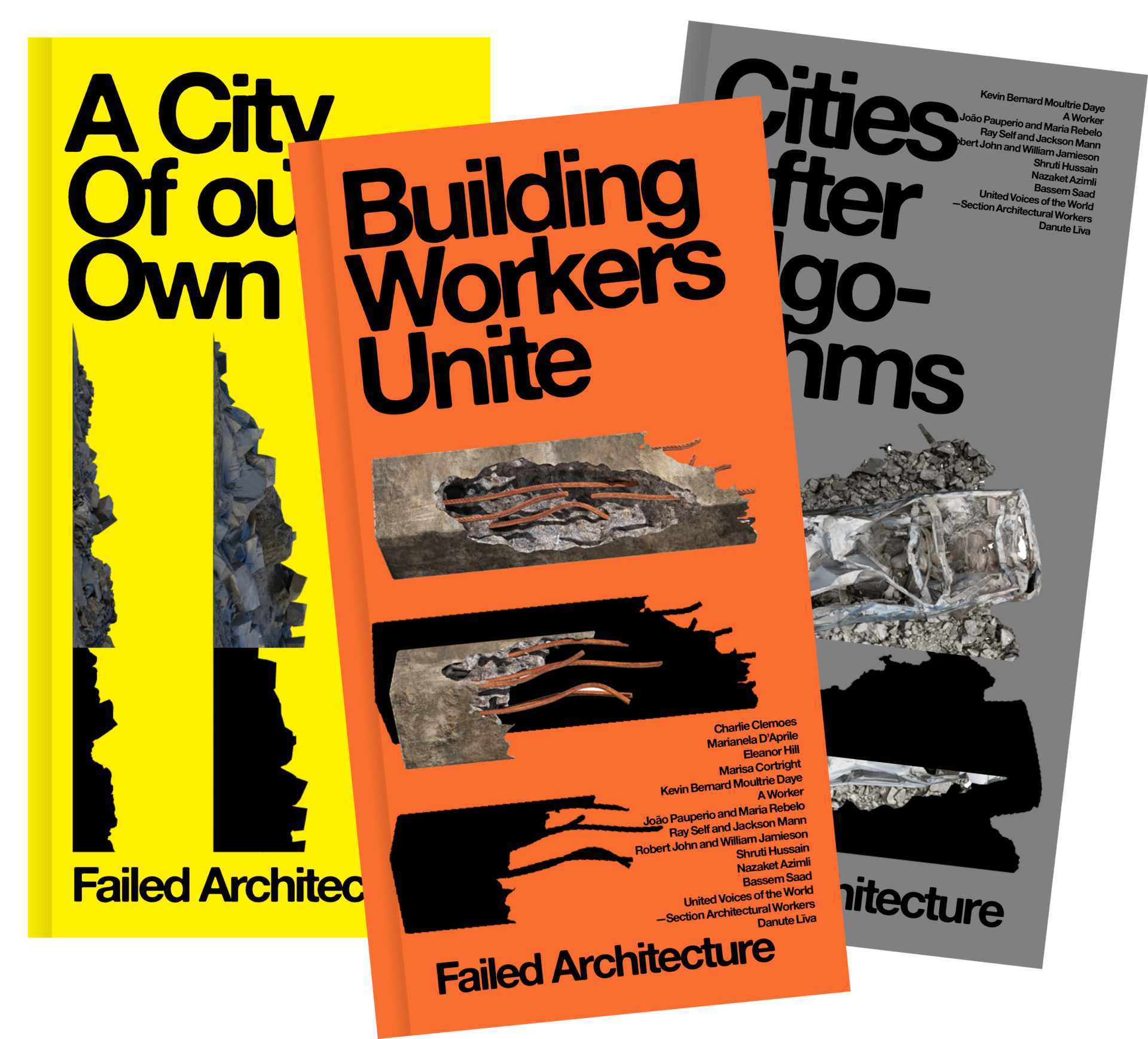Over the past few years, Failed Architecture has continued to publish critical writing on spatial issues, despite now being made up of a smaller team of core editors faced with mounting operating costs and ourselves facing the rising cost of living and having to prioritize our day jobs.
Since 2020, we’ve published two more special series curated by our core editors, driven by a desire to shed light on often overlooked dimensions of issues we find particularly pressing today. The first, Cities After Algorithms, sought to mine the logics of technological determinism we saw rising to the fore in the disciplines of spatial design and planning. Among these were Zhile Xie’s “Smart Streetlights are Casting a long Shadow Over Our Cities,” one of our most-read articles of all time, and essays by Jumanah Abbas and Meera Badran about Israel’s use of technology in its occupation of Palestine, in particular its control of communications frequencies and its translation technologies, respectively.
In 2023, we launched The Climate Changed, a series devoted to troubling common narratives about the climate crisis. In it, Dewi Tan wrote about Jakarta’s political class mismanaging water resources and scapegoating rising sea levels, FA editor Charlie Clemoes interviewed members of the Architecture Lobby’s Green New Deal working group on what a just transition could look like for the building industry, and Daniel A. Barber asked the all-important question of today’s intersecting crises: how much is enough? We’ll be publishing the final articles in this series in the coming months. In the meantime, in an effort to expand the access to the essays we’ve published, we’ve begun to commission translations: Sasha Plotnikova’s essay on LA’s carceral tiny homes for the unhoused is now available in a Spanish translation by María Camila Salcedo and María Victoria Londoño Becerra. Our editors have also been busy compiling FA special series into a beautiful set of paperback books that will fit in your back pocket. Our first book, Building Workers Unite, will be available for sale in 2025, followed by A City of Our Own.
Offline, our Palestine benefit film series Besieged, on the spatial mechanisms of Israel’s occupation of Palestine, included screenings of Raed Andoni’s Ghost Hunting in Los Angeles, and Matt Peterson and Malek Rasamny’s Spaces of Exception in London. The mostly-online series paired by-donation film streaming with interviews, featuring Jumana Manna and Noura Alkhalili on land, Muna Dajani on water infrastructure, and Nasreen Abd Elal and Raed Andoni on incarceration. Thanks to your donations throughout this series, we raised over €2700 for aid groups in Gaza.
Many of our core editors have transitioned out of their roles into an advisory position on our Editors at Large team over the past few years. Our core team has shrunk as a result, but is made up of a devoted group that keeps FA running: we welcomed Sasha Plotnikova in 2023, and Alistair Napier and Hamzah Al Asadulloh in 2024. They join Eda Hisarlioglu, Laura Buitrago, and Charlie Clemoes to make up our current core editorial team.
In 2025, we’ll be publishing our next series, Everywhere Walls, Borders, Prisons, for which we’ve received some very promising pitches and are still accepting submissions. We look forward to experimenting with a wider range of formats and continuing to offer an independent platform for interventions in discourse about spatial issues and the built environment. All of the work described above takes funding: paying for the rights to films, a stipend to translators and interviewees, and fees for our web developer, domain, and the multiple accounts required for our operations. We pay our writers a nominal fee of €150 per article, and hope to raise this in 2025 if we can meet our monthly donation goal of €850. Our editors each receive €600 per semester in return for carrying out a host of editorial, administrative, and financial tasks required to keep FA up and running.
If you’d like to support this work, please consider making a donation as part of our month-long fundraising push—our platform depends on it. Our small and dedicated base of monthly donors allow us to keep all of our content available for free, without any paywalls or exclusive content. Staying financially independent from well-resourced foundations and firms in the design world allows us to support emerging and independent voices in spatial criticism and to set our own political agenda. Last year, we committed to the Palestinian Academic and Cultural Boycott of Israel, a decision we could take without having to consult with an advisory board or with large donors — just one example of what’s made possible by the generosity of our dwindling base of small donors. Throughout this fundraising campaign, readers who pledge to donate €10 or more per month, or make a one-time donation of €100 or more will receive a small token of our appreciation in the form of a carefully crafted digital ephemera package commemorating our in-person events around the world over the years.
Thanks to each and every one of you for reading, supporting, and sharing our work over the years and into the future.

